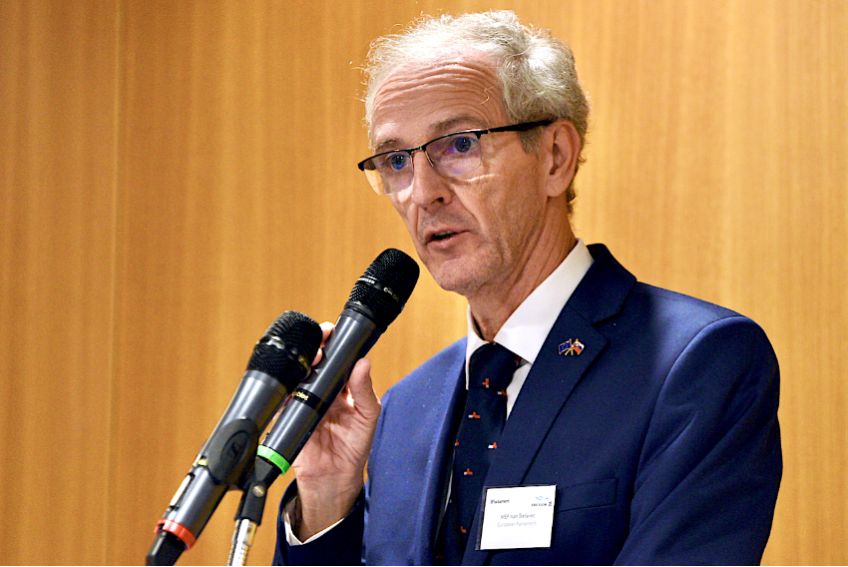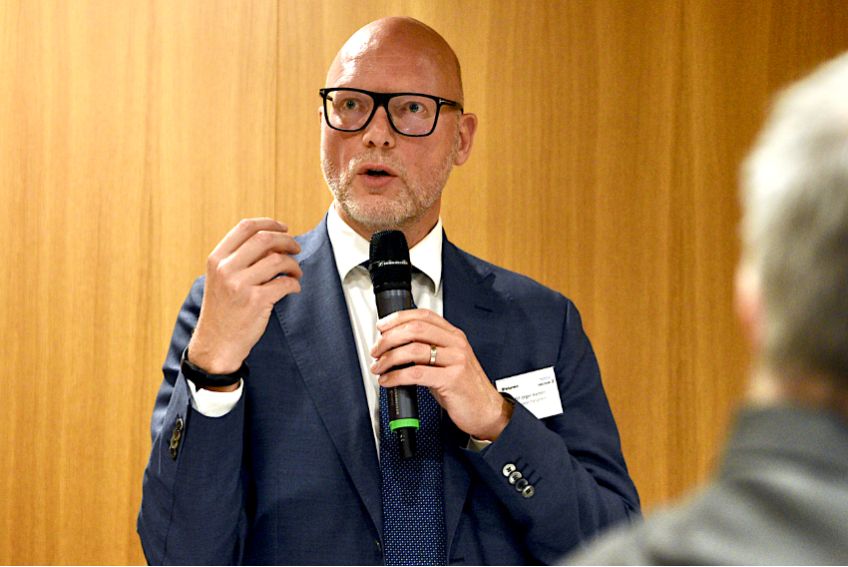Standardisation of mobile network technology has been ensuring performance and interoperability for companies of all sizes and has put European tech companies like Ericsson and Nokia in a leading position worldwide. But changes to the way standard essential patents (SEPs) work in the EU risk stifling European innovation and influence, in favour of players from elsewhere. The Parliament partnered with European tech leaders Ericsson and Nokia to gather policymakers and stakeholders at the European Parliament in Strasbourg to discuss how Europe can protect its current tech leadership in mobile connectivity whilst also supporting SMEs.
“Standardisation is a real driver for technological innovation in Europe,” explained Dirk Weiler, head of standards technology at Nokia. Developing these standards requires significant investment in research and development. “On average, companies invest around nine per cent of their revenue into R&D,” Weiler informed the audience, “however, as proud European innovators, both Ericsson and Nokia invest around 18 per cent of their revenue into R&D.” This has led to Ericsson and Nokia being among the few European tech champions contributing significantly to the EU’s economic security and leadership in critical mobile technology.
“I am quite concerned about pushing industry out of Europe. This is definitely something we don’t want. I can ensure you everybody in this house will listen” - MEP Ivan Štefanec (Slovakia, EPP)
But this process of standardisation in Europe relies upon European companies developing cutting-edge technology and contributing that technology to global standards. Mathias Hellman, vice president of IPR strategy and portfolio management at Ericsson added that “this process of developing cutting edge, ever improving standards is 100 per cent dependent on getting a fair return on our technology contributions”. This fair return is currently provided through licensing of SEPs, which ensure European tech companies can continue to sustain their intensive investments in the global standardisation effort.
This was highlighted in a powerful intervention from Fredrik Erixon, an economist and the director of the European Centre for International Political Economy (ECIPE). As forward-looking companies, Erixon explained that Ericsson and Nokia have always worked with a focus on the development of the next generation of mobile networks in mind. This commitment to creating future technologies for Europe has led to the companies being widely recognised as leading developers and trusted suppliers of mobile networks which are increasingly a critical European infrastructure.
 MEP Ivan Štefanec (Slovakia, EPP)
MEP Ivan Štefanec (Slovakia, EPP)
Erixon reminded the audience that “Ericsson and Nokia faced a significant challenge during the financial crisis in the face of new market domination from players like Apple and Samsung. Both decided to dedicate their total focus to mobile networks instead of mobile phones.” The companies have continued to specialise in the creation of the foundational technologies and the networks needed to support the cellular ecosystem whilst other newcomers have focused purely on the creation of products using these technologies and ecosystems. This has led to an increase in licensing activities to ensure a level playing field that allows for continuous investment in foundational standardised technologies and the broad use of such technologies in different products and services. This recognition of the foundational work of Ericsson and Nokia has led to them being used by telecom operators and connected device makers across the world.
While all participants agreed that the goal of more transparent licensing was commendable, several unintended consequences of the proposed SEP regulation were highlighted. In his keynote address, Erixon laid out two key concerns: the risk of legislation eroding the value of SEPs and the threat of legislation going against European interests. “By decreasing the value of standards, we risk fewer patents being declared to standards, less specialisation and less innovation,” he warned. “With implementers increasingly based outside of Europe in countries like the US and China, these legislative changes look set to redistribute income from Europe to other parts of the world.”
“With implementers increasingly based outside of Europe in countries like the US and China, these legislative changes look set to redistribute income from Europe to other parts of the world”
- Fredrik Erixon, economist and director of the European Centre for International Political Economy (ECIPE)
Further concerns were raised that the Commission had not conducted a proper impact assessment and had not identified a clear market failure to address. Collette Rawnsley, head of IP Policy & Advocacy at Nokia, questioned whether the proposals should not instead build on existing capabilities at the European Telecommunications Standards Institute (ETSI), rather than duplicating those capabilities at the European Intellectual Property Office (EU IPO) which currently has no experience or expertise regarding patents. “What will really be the benefit of creating a duplicate register away from ETSI? Moreover, lots of the information around patents and standards will not be fully coordinated. Is this transparency or just information overload and will this truly help SMEs?” she questioned. Participants also pointed to the need for quality advice to help SMEs and called for improvements to the European Commission’s IPR helpdesk.
 MEP Jörgen Warborn (Sweden, EPP)
MEP Jörgen Warborn (Sweden, EPP)
So, what’s next? MEP Jörgen Warborn (Sweden, EPP) reminded participants that the European Parliament also has the power to request impact assessments. He questioned whether this could be the next avenue policymakers explore to address the apparent shortcomings of the European Commission’s proposed legislation. Erixon, meanwhile, called for the Parliament and the European Council to ask challenging questions of the Commission including on the data which was used to justify the proposal and come up with an action plan addressing the proposal’s shortcomings.
Providing his closing remarks for the event, host MEP Ivan Štefanec (Slovakia, EPP) reinforced his commitment to Europe and its businesses. “I am quite concerned about pushing industry out of Europe. This is definitely something we don’t want. I can ensure you everybody in this house will listen”.
In partnership with

.jpg)
This article was produced in partnership with Ericsson and Nokia.
Sign up to The Parliament's weekly newsletter
Every Friday our editorial team goes behind the headlines to offer insight and analysis on the key stories driving the EU agenda. Subscribe for free here.